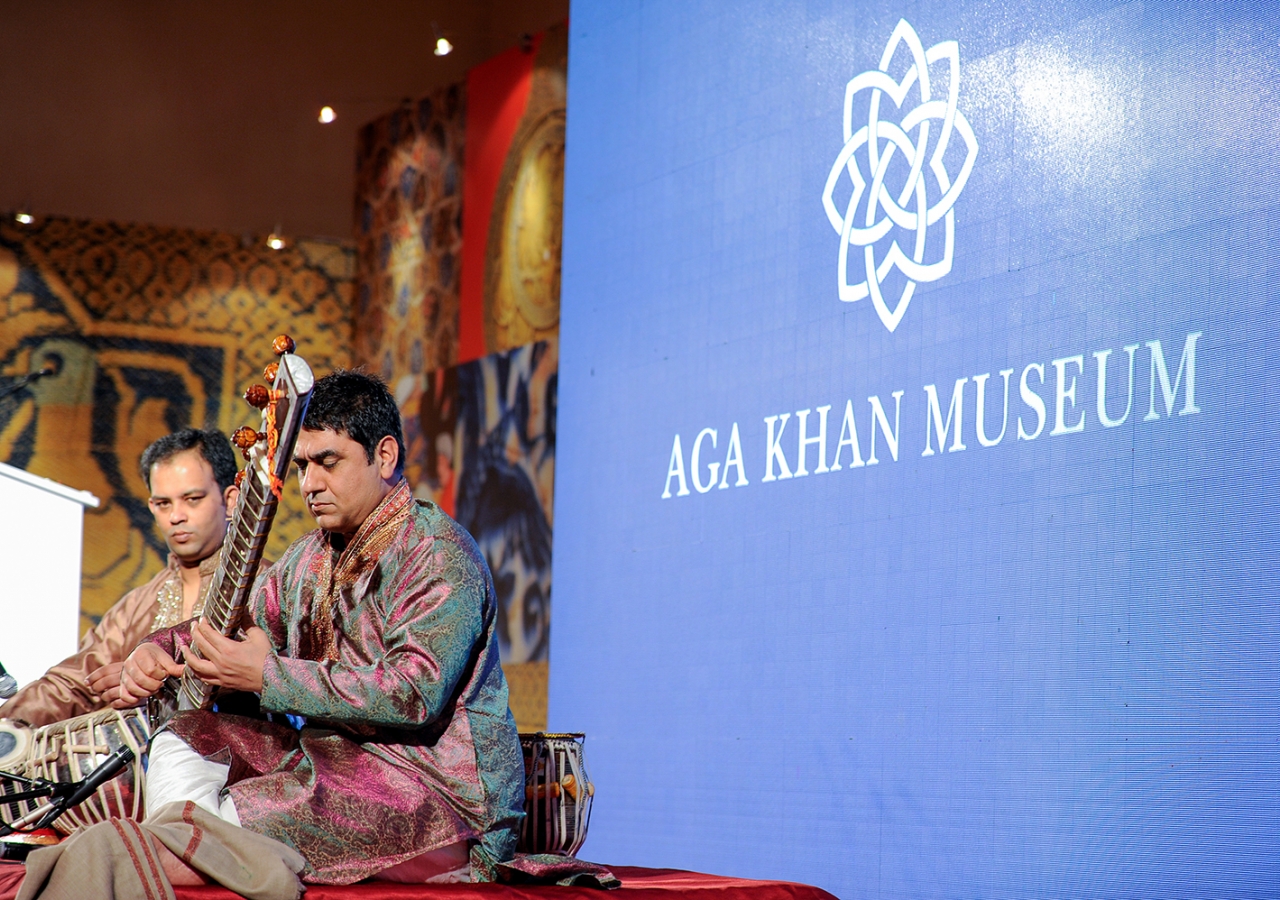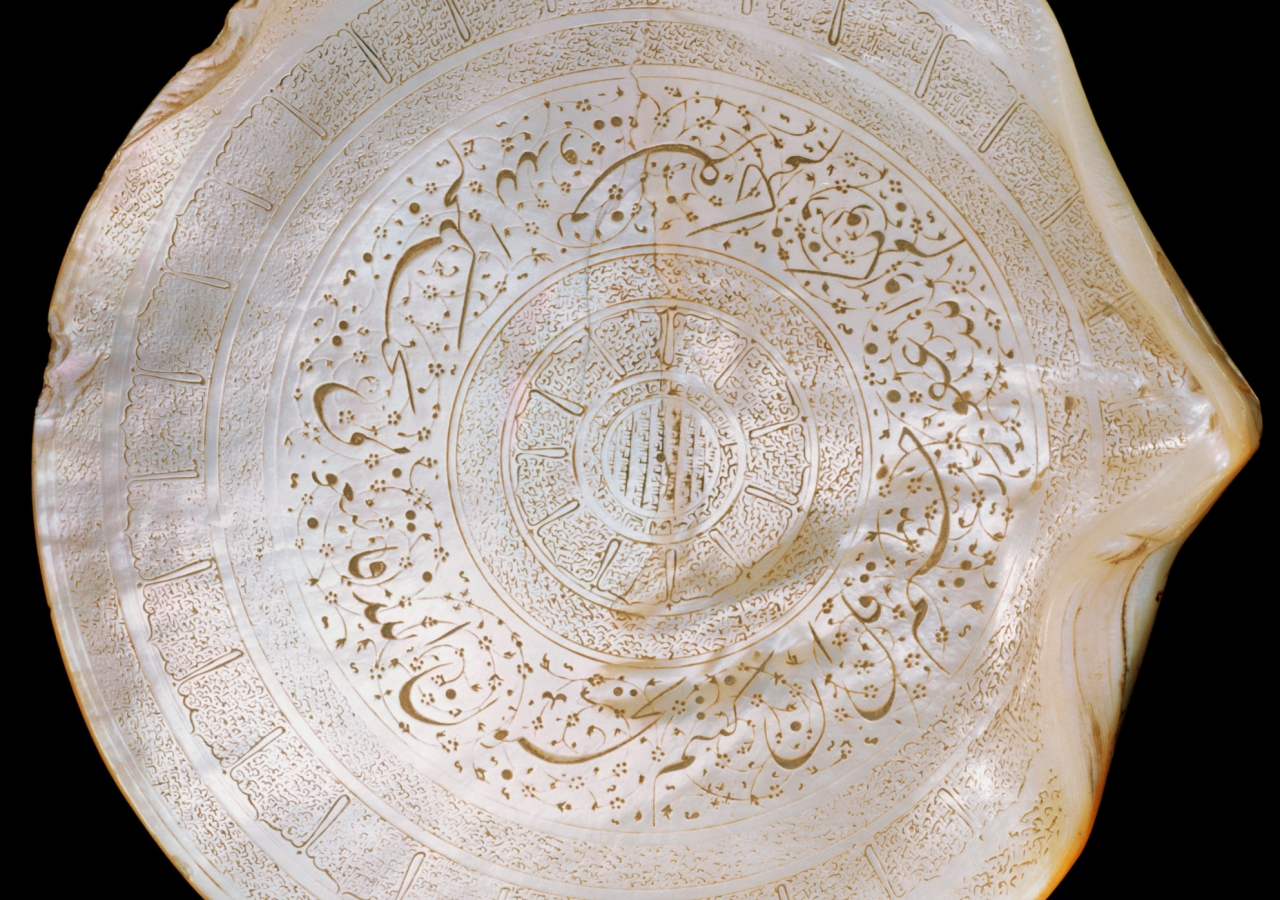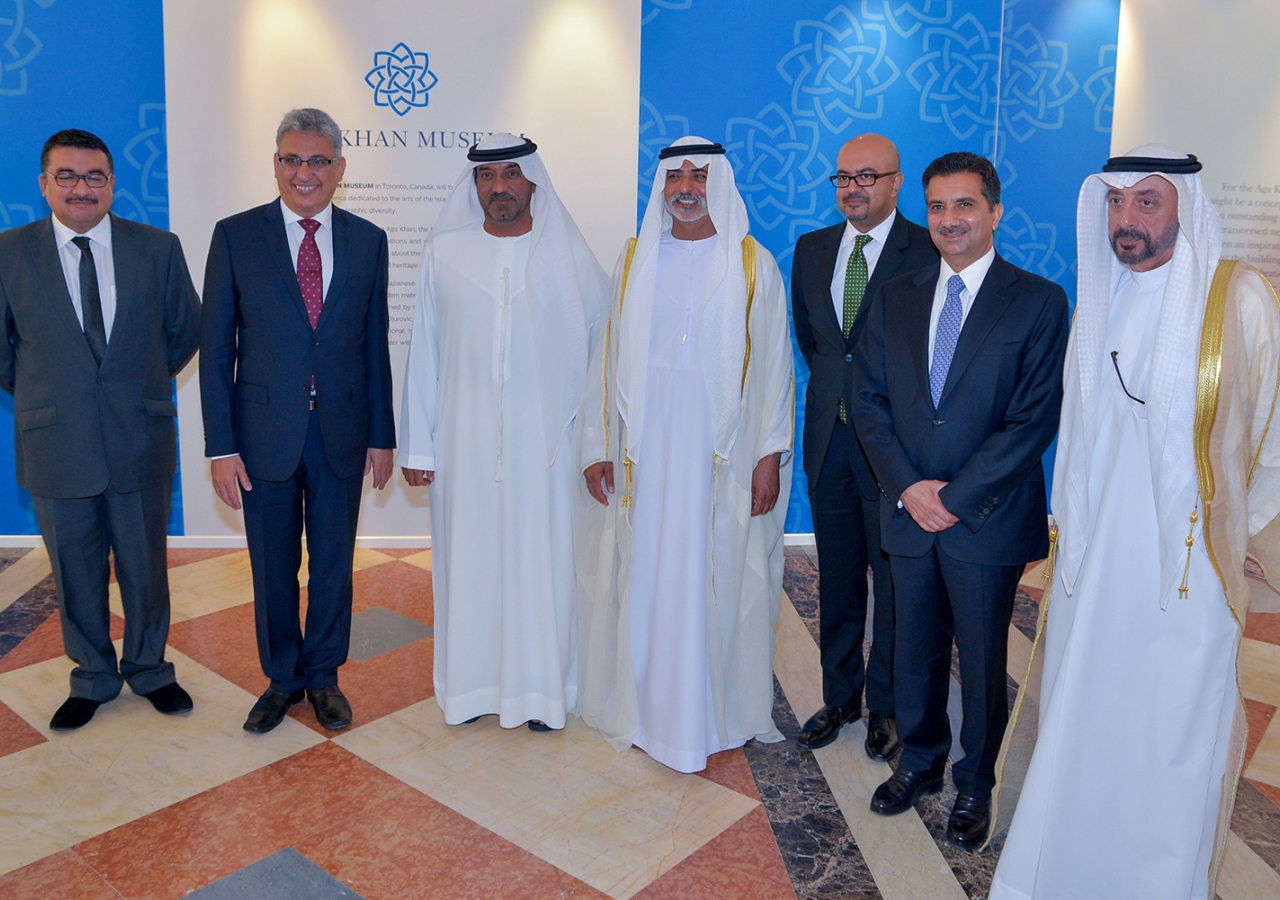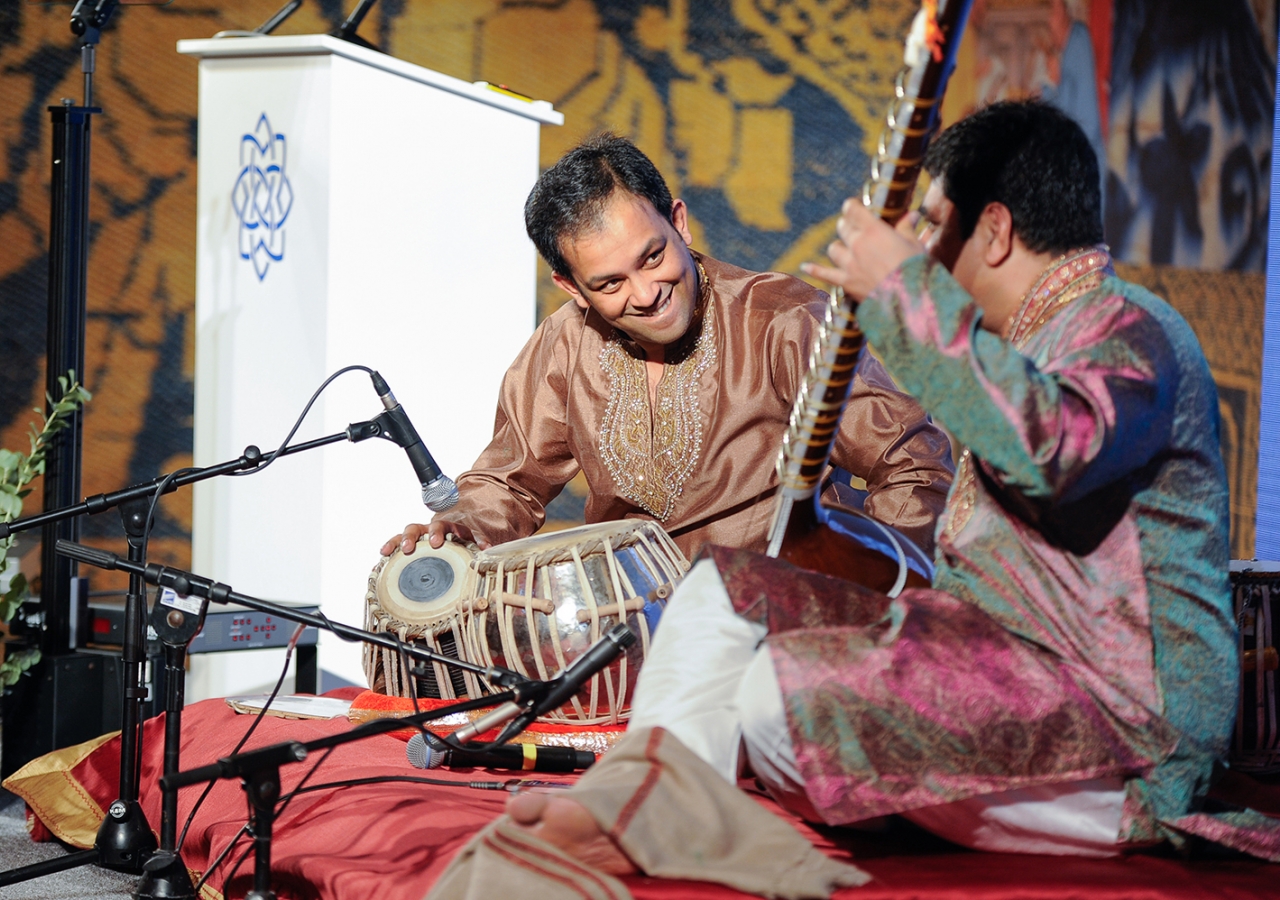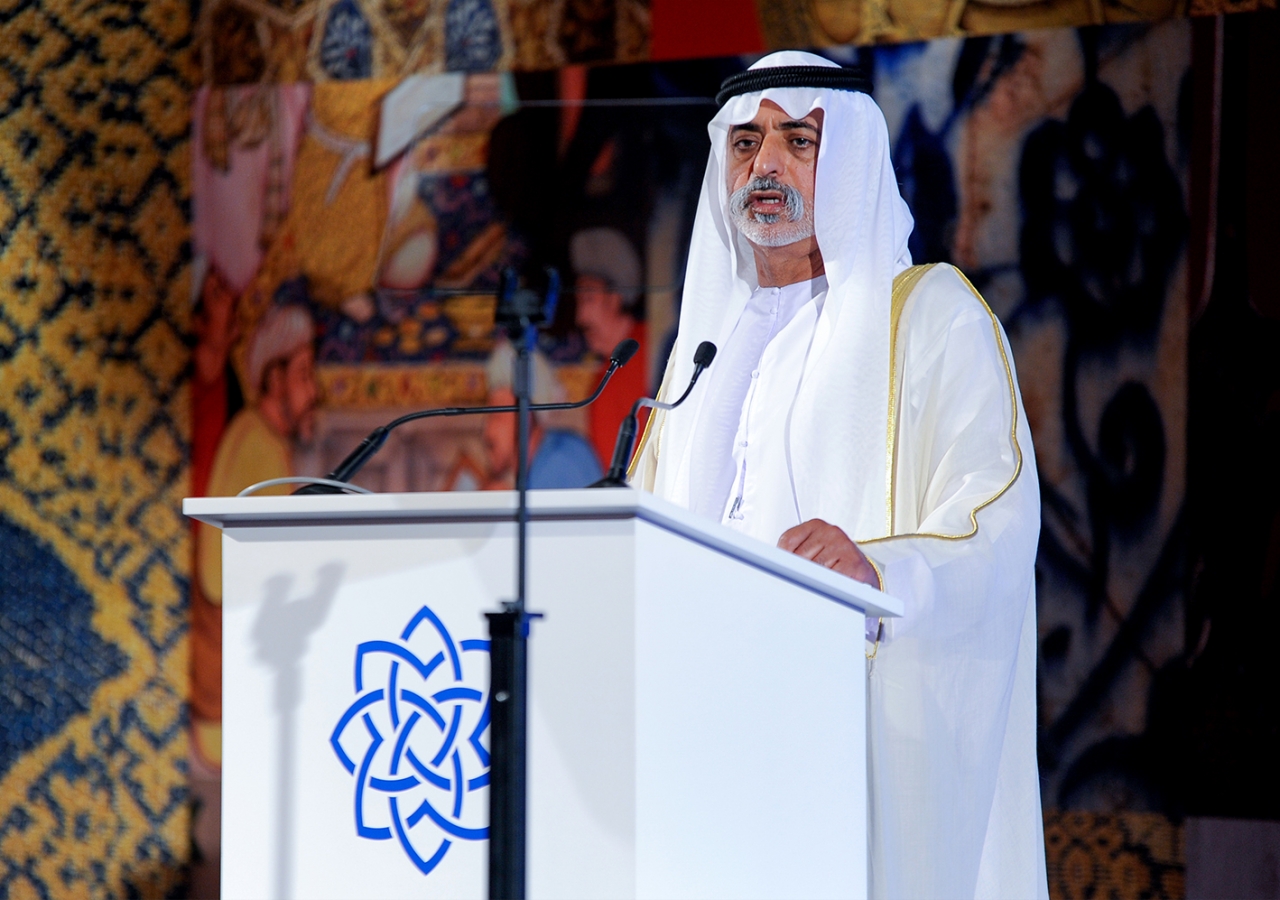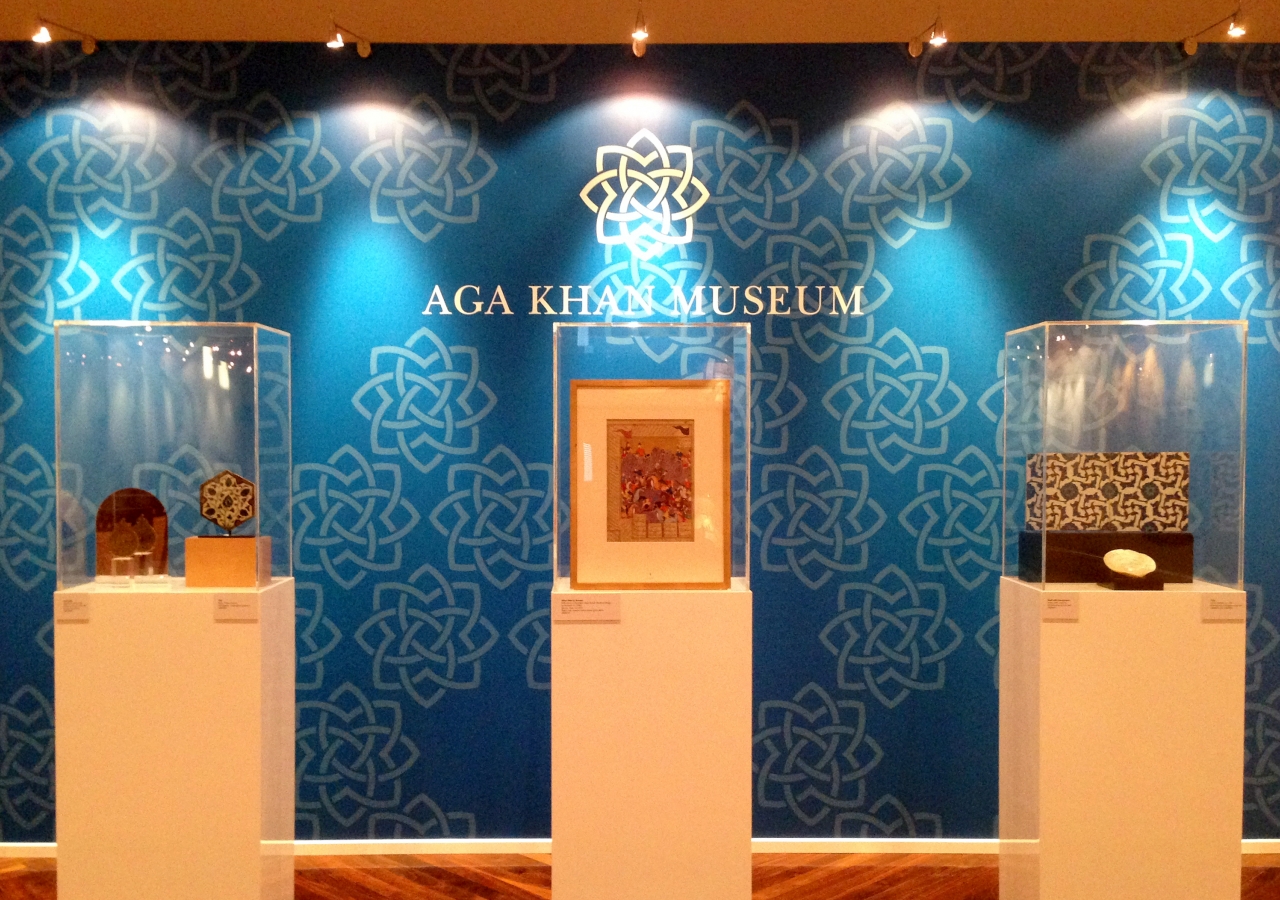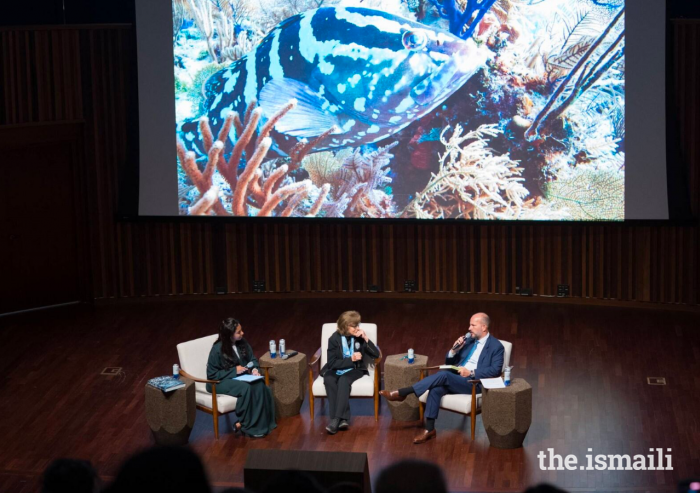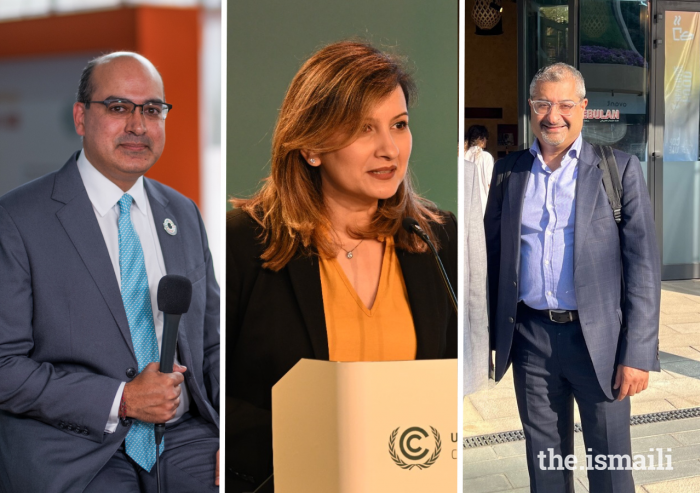For three days in March, the Ismaili Centre, Dubai played host to five exquisite pieces of art.
An 18th century astrolabe from Iran that was signed by Hajji ‘Ali. A 16th century Safavid miniature painting depicted a scene from Firdawsi's Shahnama. Tiles from 15th century Syria and the Ottoman era whose patterns conjure the idea of turning dervishes. And an 18th century Mughal shell adorned with Qur'anic inscriptions in exquisite calligraphy.
Each told a story about its provenance, its patron and the history and culture of the people that produced it. Each was a piece from the collections of Mawlana Hazar Imam and his family – now part of the permanent collection of the Aga Khan Museum in Toronto. Each offered a glimpse of what the Museum will reveal when it opens its doors later this year.
Together, they spoke to the astounding diversity of the Muslim world.
The display was part of an Art Dubai event hosted at the Ismaili Centre by the Museum and the Embassy of Canada to the United Arab Emirates that offered a preview of what will be the first museum in North America dedicated to the Islamic arts and cultures. Through its collection of paintings, ceramics, textiles, illuminated manuscripts, medical and scientific texts, tiles and musical instruments the Aga Khan Museum will reflect the histories, geographies and cultures of Muslim societies from Spain in the West to China in the East.
“The museum preserves important artifacts of our Islamic heritage,” said His Excellency Sheikh Nahyan Mabarak al-Nahyan, Minister of Culture, Youth, and Social Development in the UAE. “They communicate our history, culture, and art. Those artifacts convey a clear sense of Muslim diversity, a diversity that deserves global prominence.”
Delivering the event's keynote address, the Minister said that the UAE looks forward to the museum's opening. This diversity of the museum's collection is important to the United Arab Emirates, a country that “is committed to the concept of pluralism.”
Founded by Mawlana Hazar Imam, the Aga Khan Museum will be housed in an innovative new building designed by the Japanese architect Fumihiko Maki. The facility will include gallery and, exhibition spaces, classrooms, a reference library and a state-of-the-art auditorium. Visitors will experience the living traditions of Muslim societies and learn about their artistic and cultural practices, and the Museum plans to have an active performing arts calendar, exhibitions and learning programmes for all ages.
Henry Kim, Director of the Aga Khan Museum told the audience that works of Muslim art spanning the 1400 years of the history of Islam will be exhibited, allowing people to appreciate art as one of the many expressions of Muslim societies. The Museum also aims to build bridges with different cultures and enable conversations about art. One of its primary objectives is to share knowledge and educate about Muslim civilizations. Through art, the Museum hopes to address the “clash of ignorance” that Mawlana Hazir Imam has often spoken about.
The audience learnt that the Aga Khan Museum has partnered with leading global institutions, such as the Musée du Louvre in Paris, the State Hermitage Museum in St Petersburg and the Museum of Islamic Art in Doha, to advance scholarship, create exhibitions and promote understanding and appreciation of the beauty of the arts of the Islamic world.
Sheikh Mabarak Al Nayahan applauded the effort to fostering greater understanding amongst peoples of different backgrounds. Quoting from the Steven Ogden Lecture that had been delivered by Mawlana Hazar Imam at Brown University only days earlier, he noted that Hazar Imam advocated “a thoughtful, renewed commitment to the concept of pluralism and to the closely related potential of civil society.”
It is the conviction of the United Arab Emirates leadership, said the Minister “that honest, good faith dialogue among dedicated individuals and organisations representing people of diverse religions, cultures, beliefs, and backgrounds can help make this a better, more peaceful and more prosperous world.”
His Excellency Arif Lalani, the Ambassador of Canada to United Arab Emirates, concurred with the Minister. Canada, he said, also values pluralism, and in a world divided by sectarian strife, the importance of dialogue and conversation are supremely necessary.
His Highness Ahmed Bin Saeed al-Maktoum, President of the Dubai Department of Civil Aviation and Chairman of The Emirates Group, and Sultan Allana, Chairman of Habib Bank Limited, were among the guests.
A performance by the renowned sitar player Mohammed Assani and tabla virtuoso Shahbaz Hussain brought the crowd to its feet. It also served as a reminder that the performing arts – also a vital form of cultural expression in Muslim societies – will find a welcome home at the Museum.
“I strongly believe that culture and the arts are important catalysts for peace, understanding and harmony in the world,” said Sheikh Mabarak Al Nayahan. “Art allows us to celebrate the principles and values that unite us across national and cultural boundaries and highlights our common values and pursuits.”
“I am pleased to anticipate, indeed to celebrate, the imminent opening of the Aga Khan Museum in Toronto with you.”

